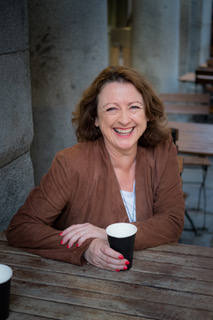Accepting people
as they are
There are many reasons why inclusion and belonging should matter to companies. Here are just two.
1. If you’re only selecting talent from one group of people, you’re losing out on a lot of talent.
2. Companies with higher inclusion and belonging ratings make more money.
As a child, I was raised to see everyone as an individual, not to put people in boxes. Living in South Africa for 11 years, that belief became even more entrenched, and I had many arguments with people about the rights and wrongs, the ’shoulds’ and ’shouldn’ts’. Returning to the UK, I thought that we had overcome these challenges. We haven’t.
I realised though that what is needed isn’t a ‘kick the turkey off the table at Christmas’ approach to the topic, proving others wrong, trying to argue them into valuing diversity. What is needed, in our private lives and at work, is a culture where we can have these awkward, difficult conversations, where we can be open and honest about our experiences and our fears.
I work with companies to enable them to voice the unsaid, to recognise the elephant in the room, to build a culture of trust and openness where everyone feels able to be themselves without fear of repercussion. How we achieve this is unique to every situation, but it always involves building trust and openness and identifying actions to implement.
Benefits
- Bigger talent pool to choose from
- Improved profitability
- Improved colleague relationships
- Improved attraction and retention of talent
- Greater alignment with company values
- Better reflection of customer demographic
If my way of working resonates with you, let’s chat

Let’s get to know one
another…
I have extensive experience of working across cultures in multiple languages, and am particularly good at quickly grasping challenges faced, cutting through complexity and identifying pragmatic solutions. I act as a catalyst, enabling people to become ‘unstuck’ and move forward. My ability to hold multiple viewpoints enables me to empathise with the challenges faced by my clients, whilst also allowing me to challenge assumptions.